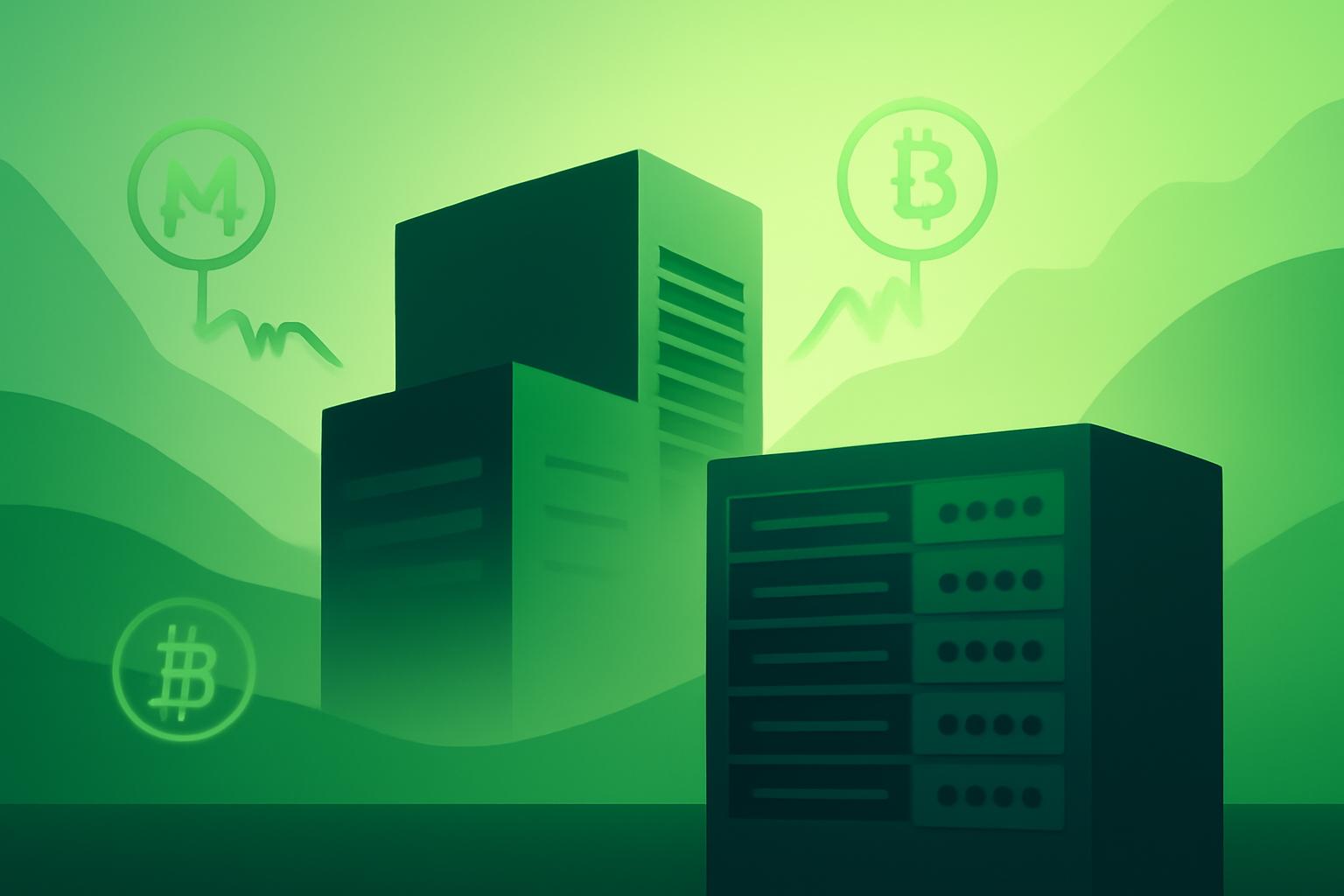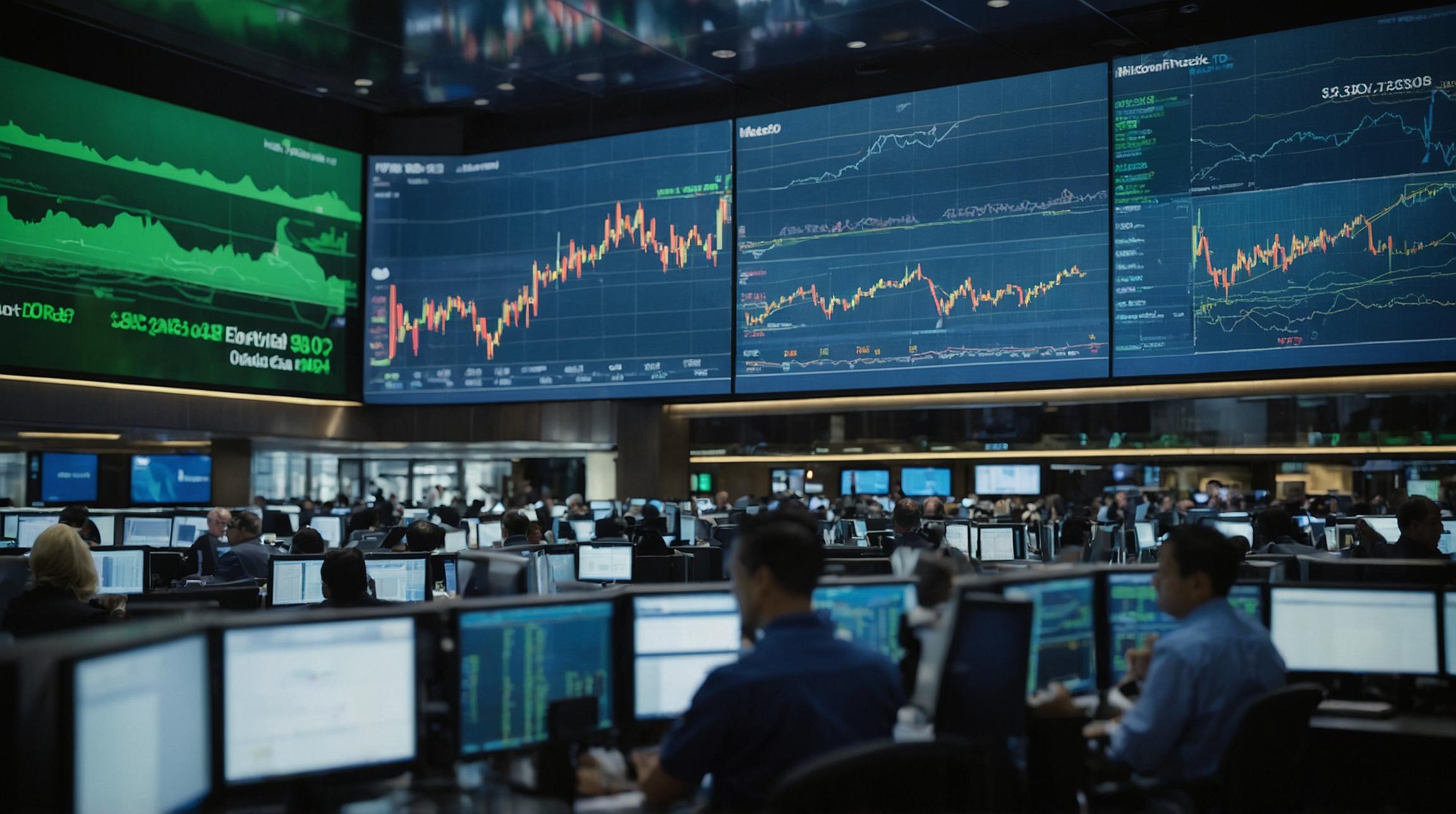CleanSpark’s Strategic Shift Into AI Data Centers
Las Vegas-based bitcoin miner CleanSpark is diversifying its operations by entering the artificial intelligence (AI) data center market. The company’s CEO, Matt Schultz, detailed this strategic pivot during a recent interview on CNBC’s “Crypto World,” emphasizing how AI data centers are poised to become integral to crypto mining companies’ business models.
Outpacing Microsoft: Winning the Wyoming Data Center Contract
CleanSpark secured a 100-megawatt site in Cheyenne, Wyoming, beating out tech giant Microsoft for the coveted contract. The key differentiator was the company’s rapid deployment capability. While Microsoft faces a three- to six-year timeline to build a comparable AI data center, CleanSpark can scale and energize bitcoin mining facilities in approximately six months.
“We were able to scale up and deploy a 100 megawatt bitcoin mining facility in about six months, whereas building a proper AI data center will take years,” said CEO Matt Schultz. “Cheyenne didn’t select CleanSpark because we had a stronger balance sheet than Microsoft.”
Leveraging Energy Assets for Dual Growth
CleanSpark’s roots as an energy company have positioned it uniquely in the evolving tech landscape. With approximately 1.03 gigawatts of energized facilities and an additional 1.7 gigawatts in development, the company uses bitcoin mining to rapidly build and monetize energy infrastructure, then selectively transitions facilities to AI and high-performance computing where viable. Atlanta, identified by Schultz as a prime AI data center hub on the East Coast, exemplifies this approach, trailing only Northern Virginia in AI infrastructure concentration.
Partnership with Submer to Expand AI Capabilities
On October 28, CleanSpark announced a collaboration with Submer, a specialist in data center design and construction. This partnership aims to develop AI-focused campuses across North America, combining CleanSpark’s energy and land assets with Submer’s advanced liquid-cooled, high-density infrastructure.
“We are positioned to deliver AI capacity at gigawatt scale, faster, cleaner, and more efficiently than traditional approaches,” Schultz stated. “This aligns with our vision to transform CleanSpark’s infrastructure into the backbone of intelligent computing.”
Market Dynamics: Power Constraints and AI Demand
The surge in AI development has escalated demand for data center power. Major hyperscalers such as Amazon, Google, and Microsoft are investing heavily in new data centers and nuclear power projects but face prolonged delays connecting to power grids. Schultz emphasized that bitcoin miners, including CleanSpark, hold a strategic advantage by owning critical assets: land, substations, and direct electricity access, which are increasingly scarce resources in the data center market.
Strong Financials Amid Industry Challenges
CleanSpark reported nearly $198.6 million in revenue for Q3 fiscal 2025, marking a 91% increase year-over-year. The company holds 12,703 bitcoin in its treasury, underscoring its continued commitment to cryptocurrency despite the pivot toward AI. This diversification is timely, given the tightening margins in bitcoin mining following the April 2024 halving event that reduced block rewards by half.
Power Flexibility: A Key Competitive Edge
CleanSpark’s mining operations can dynamically adjust power consumption, reducing load or feeding electricity back into the grid during peak demand or emergencies—capabilities that rigid AI data centers lack. This flexibility proved critical during Hurricane Helene in Georgia, when CleanSpark curtailed its mining rigs to restore power to a hospital within an hour, demonstrating the company’s utility as a grid stabilizer.
“Blending bitcoin mining with AI data centers provides the interruptibility and flexibility utilities desperately need,” Schultz explained. “AI centers require near-perfect uptime and cannot offer this responsiveness.”
FinOracleAI — Market View
CleanSpark’s swift expansion into AI data centers highlights a strategic evolution in the intersection of crypto mining and high-performance computing. By leveraging existing energy infrastructure and flexible power management, CleanSpark is well-positioned to capitalize on soaring AI demand while mitigating crypto market volatility.
- Opportunities: Accelerated deployment of AI data centers leveraging existing energy assets; strategic partnerships enhancing technological capabilities; flexible power consumption supporting grid reliability.
- Risks: Potential regulatory scrutiny on energy usage; competition from established hyperscalers with deep capital reserves; market volatility in cryptocurrency impacting revenue stability.
Impact: CleanSpark’s innovative approach strengthens its competitive position in both crypto mining and AI infrastructure sectors, signaling a positive market outlook amid evolving tech and energy landscapes.













